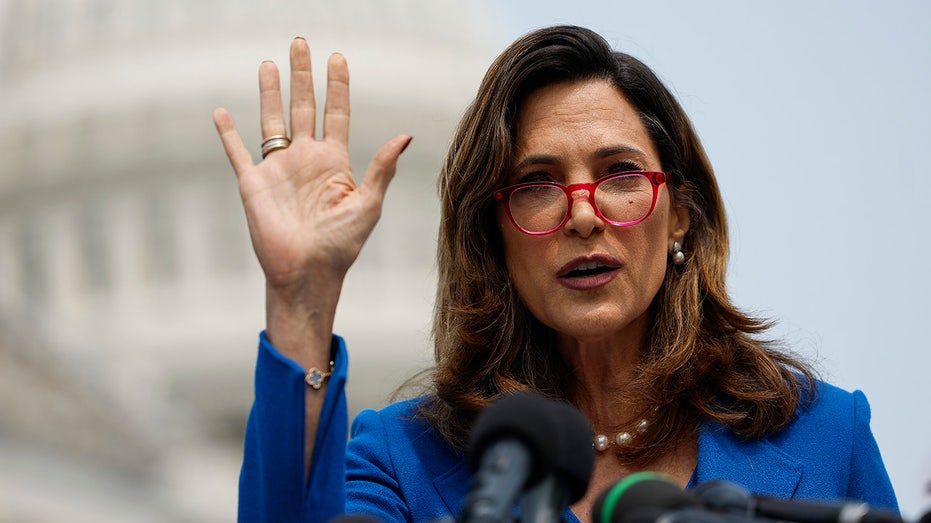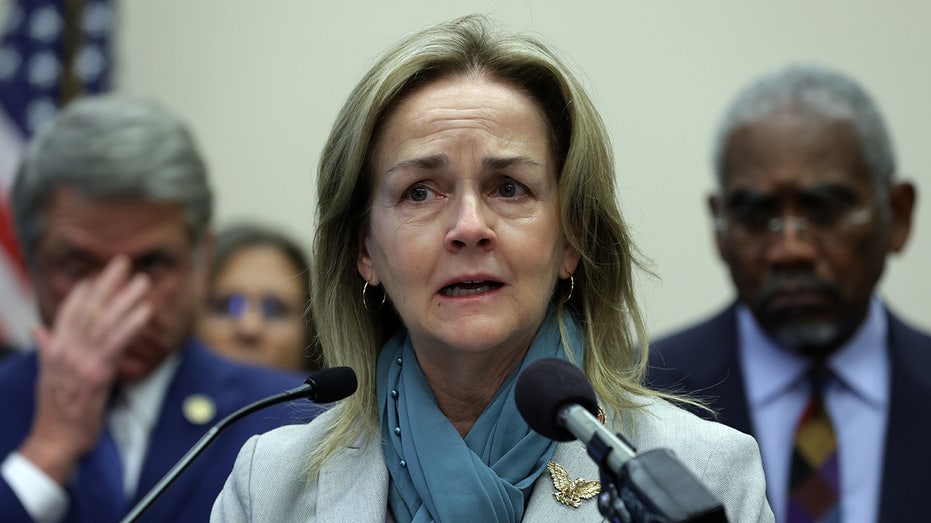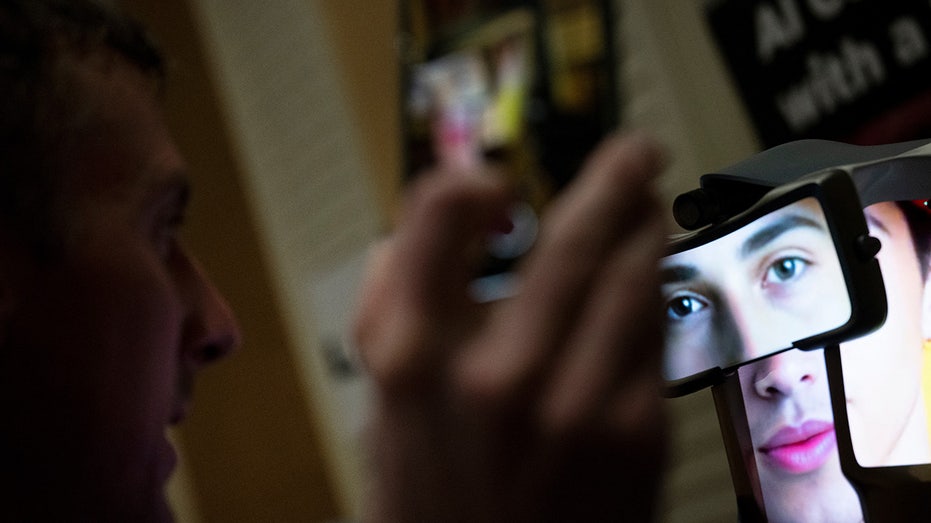Bipartisan House bill on AI fraud aims to set safeguards on Americans' 'digital personas,' rights to likeness
The bill would provide protections for recording artists and others
How can functional artificial intelligence aid defense forces?
Snowpoint Ventures cofounder and general partner Doug Philippone provides insight on investing in defense on 'The Claman Countdown.'
Rep. María Salazar, R-Fla., and Rep. Madeleine Dean, D-Pa., introduced legislation on Wednesday focused on protecting Americans' rights to their likenesses and voices against artificial intelligence fraud.
Recognizing that artificial intelligence (AI) brings immense innovation and convenience to America’s most critical business sectors and consumers, the No Artificial Intelligence Fake Replicas And Unauthorized Duplications, or No AI FRAUD Act, aims to address the unintended consequences of the new technology allowing thieves to steal their victims' identities and intellectual property (IP).
The bill aims to establish a federal framework to protect Americans’ individual right sto their likeness and voice against AI-generated fakes and forgeries, while also laying out clear First Amendment protections.
"It’s time for bad actors using AI to face the music," Salazar said in a statement to Fox News Digital. "This bill plugs a hole in the law and gives artists and U.S. citizens the power to protect their rights, their creative work, and their fundamental individuality online."
AI IS BEING USED TO CATCH MORE CHILD PREDATORS

Rep. Maria Salazar, R-Fla, said the No AI Fraud Act gives artists and U.S. citizens the power to protect their likeness and voice. (Anna Moneymaker/Getty Images / Getty Images)
"Not only does our bill protect artists and performers, but it gives all Americans the tools to protect their digital personas," Dean said in a statement. "By shielding individuals’ images and voices from manipulation, the No AI FRAUD Act prevents artificial intelligence from being used for harassment, bullying, or abuse. I am encouraged to see collaboration across the aisle to get these crucial protections passed."
As Salazar's office notes, new personalized generative AI cloning models and services have enabled human impersonation and allow users to make unauthorized fakes using the images and voices of others.
"The abuse of this quickly advancing technology has affected everyone from musical artists, actors, sports professionals, and even high school students whose personal rights have been violated," her office says. "These developments fundamentally undermine the United States’ most basic individual liberties and right to intellectual property."
AI NOW BEING USED TO GENERATE CHILD PORNOGRAPHY, BLACKMAIL TEENAGERS: DIGITAL SAFETY EXPERT

Rep. Madeleine Dean. D-Pa., said the No AI FRAUD Act combats quickly advancing AI technology abusing the rights of music artists and even high schoolers. (Alex Wong/Getty Images / Getty Images)
The legislative proposal comes as recording artists Bad Bunny and Drake have faced recent battles over AI.
According to Reuters, Bad Bunny lashed out last month after Chilean artist Maurico Bustos’ song NostalgIA, a play on the Spanish abbreviation for AI, was produced using artificial intelligence to modify Bad Bunny's vocals and went viral on TikTok. Meanwhile, the song "Heart on My Sleeve," developed by a ghostwriter who used AI versions of Drake and the Weeknd’s voices without either artists’ permission, was submitted for Grammys, Variety reported.
The No AI FRAUD Act has the support of artists in the music industry, who are encountering direct attacks to their intellectual property from abuse of artificial intelligence, Salazar's office says.
Regarding bullying and harassment, the parents of two high school girls in Westfield High, New Jersey, told news outlets in November their daughters were humiliated when they learned fake pornographic images of themselves generated with the use of AI were circulated among classmates. One boy confessed to creating the fake nudes by grabbing real pictures of the girls on social media and running them through an AI website.
It was not clear what disciplinary or legal action was taken.

A person looks at Wehead, an AI companion that can use ChatGPT, during the Consumer Electronics Show (CES) in Las Vegas, Nevada on Jan. 8, 2024. (BRENDAN SMIALOWSKI/AFP via Getty Images / Getty Images)
GET FOX BUSINESS ON THE GO BY CLICKING HERE
The bill's co-sponsors agree that laws at the state level to address these issues are inconsistent and, in some cases, not enough. The No AI FRAUD Act aims to establish a federal solution with baseline protections for all Americans by reaffirming that everyone’s likeness and voice is protected, giving individuals the right to control the use of their identifying characteristics; empowering individuals to enforce this right against those who facilitate, create, and spread AI frauds without their permission; and balancing the rights against First Amendment protections to safeguard speech and innovation.




















